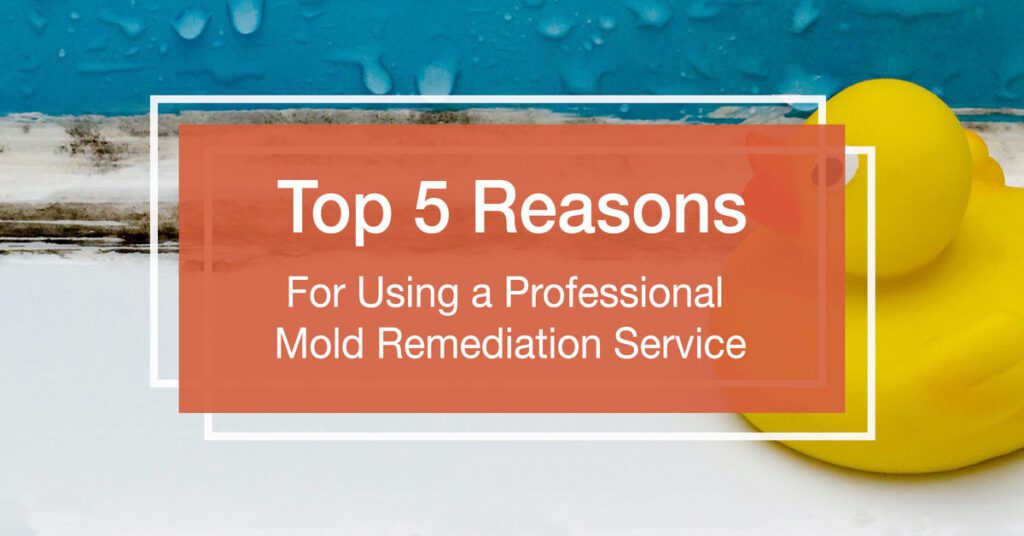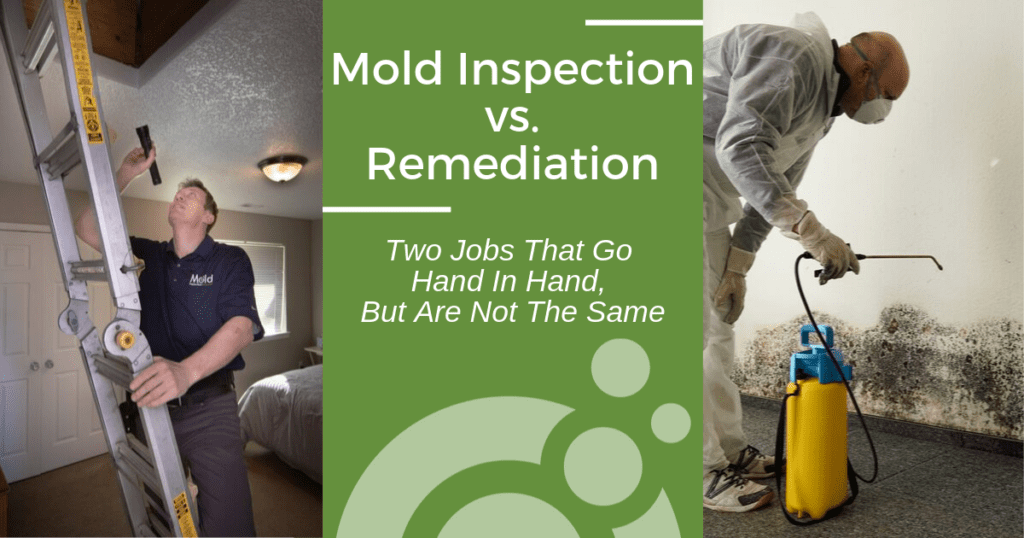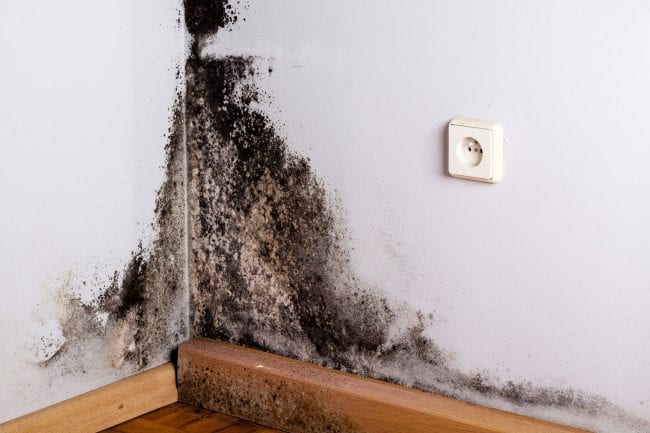Imagine coming home after a long day, only to discover that your beloved home is infested with mold. Not only is it unsightly, but it can also pose serious health risks for you and your family. That’s where Mold Removal Houston comes in. With their professional remediation services, they can eliminate the mold problem effectively and efficiently, ensuring that your home is safe and mold-free. In this article, we will explore why choosing professional mold remediation is the smartest choice when it comes to tackling this stubborn issue.

The Dangers of Mold Growth
Mold growth in homes and buildings can pose serious health risks and cause extensive damage to property and infrastructure. Understanding the dangers associated with mold is crucial for homeowners and property managers to ensure the safety and well-being of occupants.
Health Risks Associated with Mold
Mold, especially certain types like black mold, can release spores into the air that can trigger allergic reactions and respiratory problems in susceptible individuals. These health risks can range from mild symptoms like coughing and sneezing to more severe conditions such as asthma attacks and even infections in people with weakened immune systems. Prolonged exposure to mold can lead to long-term health issues, making it essential to address mold growth as soon as possible.
Damage to Property and Infrastructure
Besides the health risks, mold can also cause significant damage to property and infrastructure. Mold has the ability to gradually break down and decay various building materials, including wood, drywall, and insulation. This deterioration weakens the structural integrity of the property, leading to costly repairs and potential safety hazards. Mold growth can also cause discoloration, unpleasant odors, and stains on surfaces, negatively impacting the aesthetic appeal and value of the property.
The Challenges of DIY Mold Removal
While it may be tempting to tackle mold removal on your own, it is important to understand the challenges and potential pitfalls that DIY methods can entail. Without the necessary expertise, equipment, and knowledge, attempting to remove mold yourself can result in incomplete removal, regrowth, and even the unintentional spread of mold spores.
Inadequate Mold Detection
One of the challenges of DIY mold removal is the difficulty in detecting all areas of mold growth. Mold can often be hidden in hard-to-reach places, such as behind walls, under carpets, or inside ventilation systems. Without proper training and equipment, it is easy to miss these hidden mold sources, leading to incomplete removal and the potential for regrowth.
Insufficient Equipment and Resources
Another challenge of DIY mold removal is the lack of access to specialized equipment and resources. Professional mold remediation companies are equipped with high-quality HEPA filtration systems, industrial-strength dehumidifiers, and thermal imaging tools that are necessary for effective mold detection, removal, and prevention. Attempting to remove mold with household cleaning supplies and tools can be ineffective and may not fully eliminate the mold problem.
Risk of Spreading Mold Spores
During the DIY mold removal process, there is a high risk of unknowingly spreading mold spores to unaffected areas of the property. Mold spores are microscopic and can easily become airborne when disturbed. Without the proper containment measures and knowledge of proper removal procedures, the spread of mold spores can worsen the overall mold problem and increase the risk of health issues for occupants.
Incomplete Removal and Regrowth
Perhaps the most significant challenge of DIY mold removal is the potential for incomplete removal and regrowth of mold. Mold can be resilient and persistent, especially if the underlying moisture source is not addressed. Without professional expertise and knowledge of proper removal techniques, attempts to remove mold can often be temporary solutions that only address the surface level of the problem. This can lead to regrowth and the need for further remediation in the future.
Benefits of Choosing Professional Mold Remediation
When facing a mold problem, opting for professional mold remediation services offers numerous benefits that far outweigh the challenges and risks associated with DIY methods. From expertise and experience to advanced detection techniques and proper removal procedures, professional mold remediation ensures thorough and effective mold cleanup and prevention.
Expertise and Experience
Professional mold remediation companies have the expertise and experience necessary to handle mold problems effectively. They are knowledgeable about different mold species, their behavior, and the factors that contribute to mold growth. With their expertise, they can accurately assess the extent of the mold problem, develop a customized remediation plan, and execute it efficiently to ensure comprehensive mold removal.
Advanced Mold Detection Techniques
Professional mold remediation companies utilize advanced mold detection techniques to identify hidden mold sources and assess the severity of the problem. This includes tools such as thermal imaging cameras, moisture meters, and air quality testing equipment. These technologies allow professionals to pinpoint areas of mold growth and determine the most appropriate remediation strategies.
Proper Containment and Removal Procedures
One of the critical aspects of mold remediation is proper containment and removal procedures. Professional mold remediation companies adhere to strict guidelines and industry best practices to prevent the spread of mold spores. They use containment barriers, negative air pressure machines, and specialized filtration systems to isolate the affected areas and ensure that mold spores do not contaminate other parts of the property during the removal process.
Effective Mold Cleanup and Prevention
Professional mold remediation services go beyond simply removing visible mold. They also address the underlying moisture issues that contribute to mold growth. By identifying and addressing the source of moisture, whether it’s a leak, inadequate ventilation, or high humidity levels, professionals help prevent future mold problems and ensure a long-lasting solution.
Thorough Inspection and Testing
In addition to mold removal and prevention, professional mold remediation companies conduct thorough inspections and testing to ensure the effectiveness of their remediation efforts. This includes air quality testing to verify that mold spores have been adequately removed and that the air in the property is safe for occupants. Thorough inspection and testing provide peace of mind and reassurance that the mold problem has been successfully resolved.
Time and Cost Savings
While it may seem like a more affordable option initially, DIY mold removal can often result in higher costs in the long run. Without proper equipment and techniques, incomplete removal and regrowth can lead to repeated remediation efforts and additional expenses. Professional mold remediation companies offer a cost-effective solution by addressing the mold problem comprehensively and preventing future issues, saving both time and money in the process.
Certifications and Licensing
When considering professional mold remediation services, it is important to understand the importance of certifications and licensing. Hiring certified professionals with the appropriate licenses ensures that the remediation process follows industry standards and regulations, guaranteeing a safe and effective outcome.
Importance of Certified Professionals
Certified professionals have undergone rigorous training and met specific standards set by reputable organizations, such as the Institute of Inspection, Cleaning and Restoration Certification (IICRC) or the National Association of Mold Remediators and Inspectors (NAMRI). These certifications demonstrate that the professionals have the knowledge, skills, and ethical standards required to provide reliable and effective mold remediation services.
Licensing Requirements for Mold Remediation Companies
Some states require mold remediation companies to hold specific licenses to operate legally. These licensing requirements vary from state to state, but they generally involve meeting certain criteria, such as passing exams, demonstrating adequate insurance coverage, and having a minimum level of training and experience. Hiring a licensed mold remediation company ensures that the remediation process is carried out by professionals who meet the necessary qualifications and comply with state regulations.

Professional Equipment and Resources
One of the advantages of hiring professional mold remediation services is access to high-quality equipment and resources that are essential for effective mold removal.
High-Quality HEPA Filtration Systems
Professional mold remediation companies use high-efficiency particulate air (HEPA) filtration systems as part of their remediation process. These advanced filtration systems can capture and remove mold spores from the air, improving the indoor air quality and reducing the risk of respiratory issues associated with mold exposure.
Specialized Cleaning Solutions
Professional mold remediation companies utilize specialized cleaning solutions that are specifically designed to remove mold and prevent its regrowth. These solutions are effective in eliminating mold colonies and inhibiting the growth of new mold, ensuring a thorough and long-lasting remediation outcome.
Protective Gear and Safety Measures
Mold remediation can be a hazardous process due to the potential health risks associated with mold exposure. Professional mold remediation companies prioritize the safety of their technicians and occupants by providing appropriate personal protective equipment (PPE) and implementing safety measures. This includes wearing gloves, goggles, respirators, and disposable coveralls to minimize the risk of exposure to mold spores and other contaminants.
Industrial-Strength Dehumidifiers
Addressing the source of moisture is crucial in preventing mold regrowth. Professional mold remediation companies have access to industrial-strength dehumidifiers that can efficiently reduce humidity levels and maintain optimal moisture control in the property. These dehumidifiers are more powerful than household models and can effectively dry out affected areas, preventing the conditions necessary for mold growth.
Thermal Imaging and Moisture Detection Tools
Thermal imaging cameras and moisture detection tools are essential for identifying hidden moisture sources and areas of potential mold growth. Professional mold remediation companies utilize these tools to locate hidden leaks, condensation, and areas of elevated moisture that may not be visible to the naked eye. By accurately detecting these moisture sources, professionals can effectively address them and prevent further mold growth.
Understanding Mold Types and Behavior
To effectively manage mold problems, it is important to have an understanding of different mold species, their growth factors, and behavior.
Identification of Different Mold Species
There are thousands of different mold species, each with its distinct characteristics and potential health risks. Professional mold remediation companies have the knowledge and experience to identify different mold species and determine the appropriate remediation strategies. This information is valuable in assessing the severity of the mold problem and implementing targeted solutions.
Knowledge of Mold Growth Factors
Mold requires specific conditions to grow and thrive. Professional mold remediation companies possess a deep understanding of the factors that contribute to mold growth, such as moisture, temperature, and organic materials. With this knowledge, they can identify the root cause of the mold problem and take the necessary steps to eliminate it, ensuring effective mold removal and prevention.
Awareness of Mold Behavior and Patterns
Mold has specific behavior patterns and tendencies that professionals are familiar with. They understand how mold spreads, where it is likely to grow, and how it can penetrate and damage different building materials. This awareness allows professionals to develop targeted strategies for mold remediation and prevention, ensuring the most efficient and successful outcome.

Preventing Mold Regrowth
While mold remediation is essential for addressing existing mold problems, it is equally important to take preventive measures to reduce the risk of mold regrowth in the future.
Proper Moisture Control
Moisture control is crucial in preventing mold regrowth. Professional mold remediation companies emphasize the importance of addressing the underlying moisture source that contributed to the mold problem. This may involve repairing leaks, improving ventilation, or installing dehumidifiers. By effectively controlling moisture levels, the risk of mold regrowth can be significantly reduced.
Effective Ventilation Systems
Proper ventilation plays a vital role in preventing mold growth. Professional mold remediation companies can assess the ventilation systems in a property and make recommendations for improvements. This may include installing exhaust fans, implementing air circulation strategies, or improving airflow to minimize moisture buildup and create an environment less conducive to mold growth.
Regular Inspections and Maintenance
Regular inspections and maintenance are essential for preventing mold regrowth. Professional mold remediation companies can provide scheduled inspections to identify potential moisture issues, mold growth, or other conditions that may lead to mold problems. Timely identification and remediation of these issues can help prevent mold from taking hold and spreading.
Education on Preventive Measures
Professional mold remediation companies also offer education and guidance on preventive measures to homeowners and property managers. They can provide valuable information on mold prevention, such as proper ventilation practices, moisture control techniques, and regular maintenance strategies. By empowering property owners with this knowledge, they can proactively take steps to minimize the risk of mold growth and protect their property.
Insurance Coverage for Mold Remediation
Understanding homeowners’ insurance policies and their coverage for mold damage is essential for homeowners and property managers. Insurance coverage can play a significant role in alleviating the financial burden associated with mold remediation.
Understanding Homeowners’ Insurance Policies
Homeowners’ insurance policies vary in their coverage of mold damage. Some policies may include mold remediation as a standard coverage, while others may require additional endorsements or separate policies to provide coverage. It is important to carefully review the insurance policy to understand the extent of coverage and any exclusions or limitations.
Requirements for Coverage of Mold Damage
Insurance coverage for mold damage may come with certain requirements or conditions. For example, some policies may require prompt reporting of a mold problem, documentation of the damage, and evidence that the mold growth resulted from a covered peril, such as a sudden water leak. Understanding these requirements is crucial to ensure that the mold remediation process meets the insurance company’s criteria for coverage.
Choosing an Insured Mold Remediation Company
When filing an insurance claim for mold damage, it is often beneficial to work with a mold remediation company that is insured. An insured company provides an added layer of protection and reassurance. In the event of any accidents or damages that occur during the remediation process, the insurance coverage of the company can help cover the costs and prevent any additional financial strain on the homeowner or property manager.

The Importance of Immediate Action
When it comes to mold infestations, immediate action is crucial to minimize the potential health risks and property damage associated with mold growth. Ignoring or delaying mold remediation can result in more extensive mold problems and increased costs of remediation.
Rapid Response to Mold Infestations
Upon discovering a mold problem, it is important to respond quickly and seek professional mold remediation services. Rapid response allows for timely assessment, containment, and remediation, reducing the risk of mold spreading to unaffected areas and minimizing the overall impact on the property.
Reducing Potential Health Risks and Property Damage
Timely mold remediation helps reduce potential health risks for occupants. By eliminating mold and addressing the underlying moisture source promptly, the risk of prolonged exposure to mold spores and the associated health issues can be minimized. Additionally, quick action can prevent further damage to the property and infrastructure, saving homeowners and property managers from costly repairs and renovations.
Preventing the Spread of Mold to Unaffected Areas
Mold can quickly spread to unaffected areas if not addressed promptly. The microscopic mold spores can become airborne and travel through the HVAC systems, ventilation ducts, and even on clothing. Professional mold remediation companies implement containment measures to prevent the spread of mold spores during remediation, effectively containing the mold problem and minimizing its impact on the rest of the property.
Conclusion
Choosing professional mold remediation services is a smart choice for homeowners and property managers who want to ensure the health, safety, and value of their property. Professional mold remediation offers expertise, advanced detection techniques, proper removal procedures, thorough cleanup and prevention, necessary certifications and licensing, specialized equipment and resources, and comprehensive knowledge of mold types and behavior. By opting for professional services and taking immediate action, homeowners and property managers can protect their property investments, maintain a safe environment for occupants, and enjoy peace of mind knowing that the mold problem has been thoroughly and effectively resolved.
